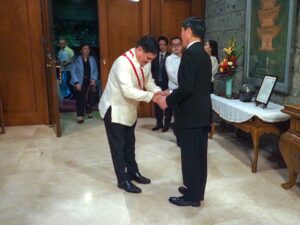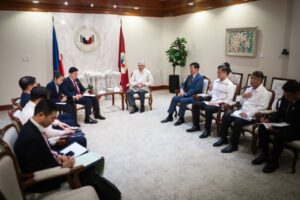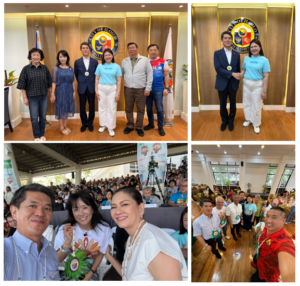Celebrating Hanukkah, an Israeli festival, right at the heart of Metro Manila was a unique and very interesting event.
For some Filipinos who have engaged Israel in more frequent ways and at a longer period of time, this may be a familiar scene. For an outsider like me, however, it was a unique experience that celebrated a historical victory of Jews, commemorating the rededication of their Temple in 165 BC (History.com, December 12, 2022), after Jews rose against their Greek-Syrian oppressors in the Maccabean Revolt.
No less than Israel Ambassador to the Philippines His Excellency Ilan Fluss, led the celebration, along with Deputy Ambassador Nir Balzam and their very able and supportive staff.
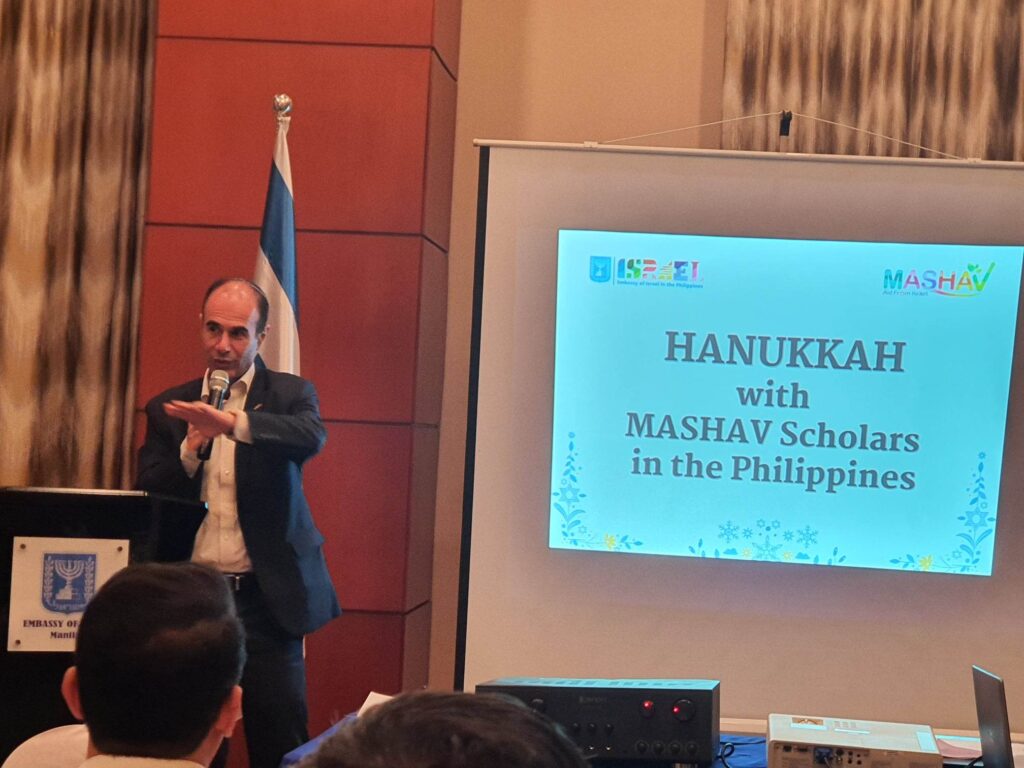
Based on History.com’s research on the festival, Hanukkah begins on the 25th of Kislev on the Hebrew calendar and usually falls in November or December. Often called the Festival of Lights, the website continues, the holiday is celebrated with the lighting of the menorah (a candelabrum used in Jewish worship), traditional foods, games and gifts.
Ambassador Fluss acted as the local Rabbi and led the celebration. He lit the menorah’s eight candles that represented eight nights that historically, saw its flames continue to flicker, leaving the Jews, who took part in the temple rededication, find enough time to find fresh supply of olive oil for the menorah.
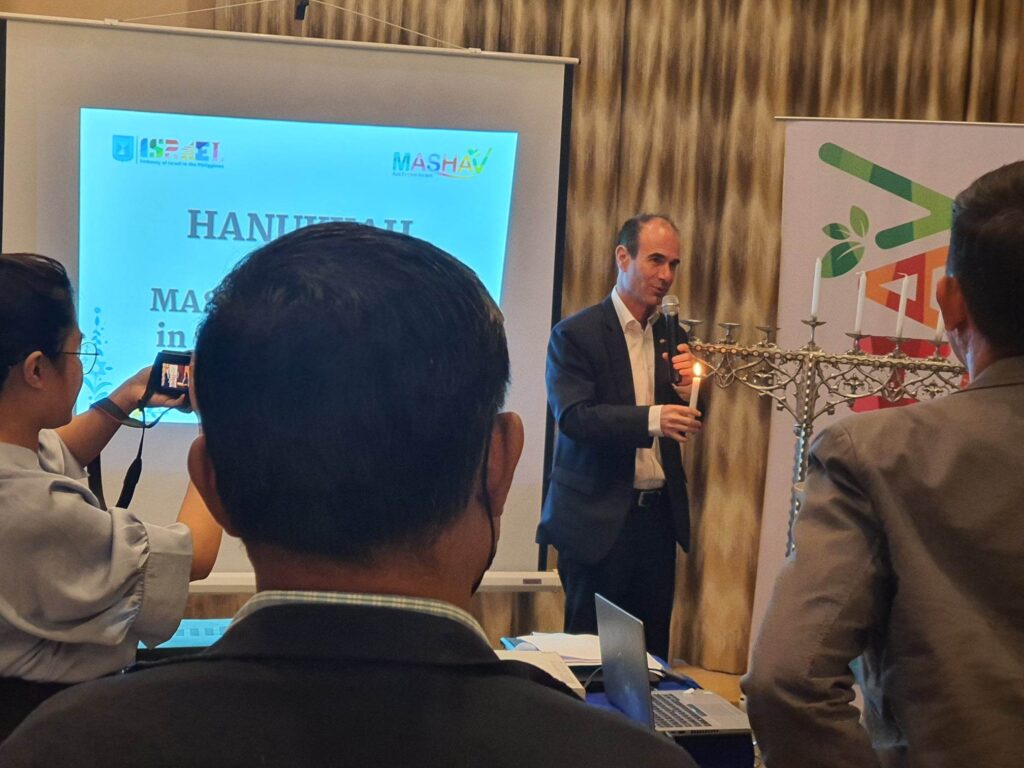
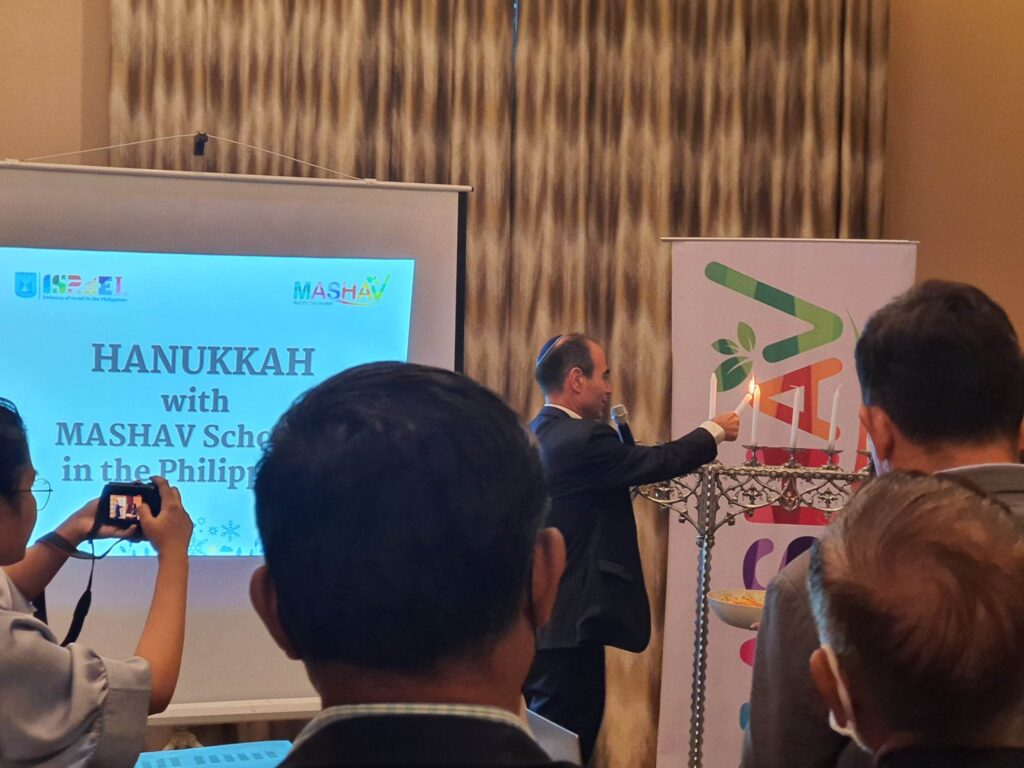
Before and after the lighting of the menorah, Jewish songs were sang and they gave an added solemnity to the celebration. The invited guests and audience were then given donut-like breads that represented a part of the Jewish commemoration of the Festival of Lights.
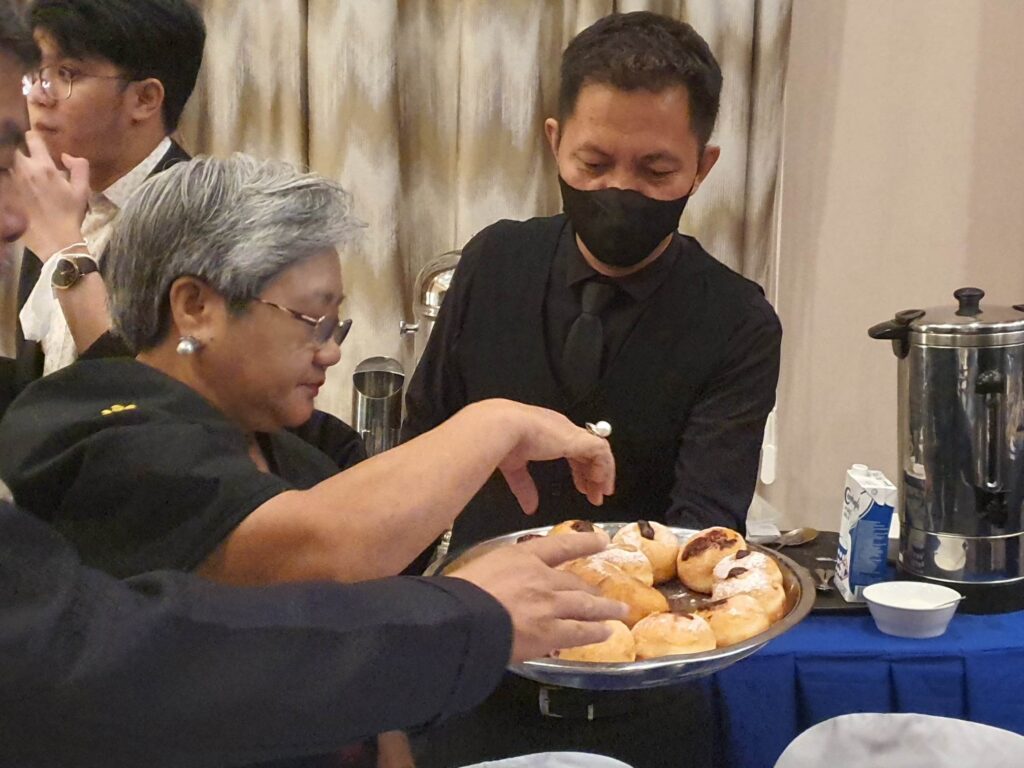
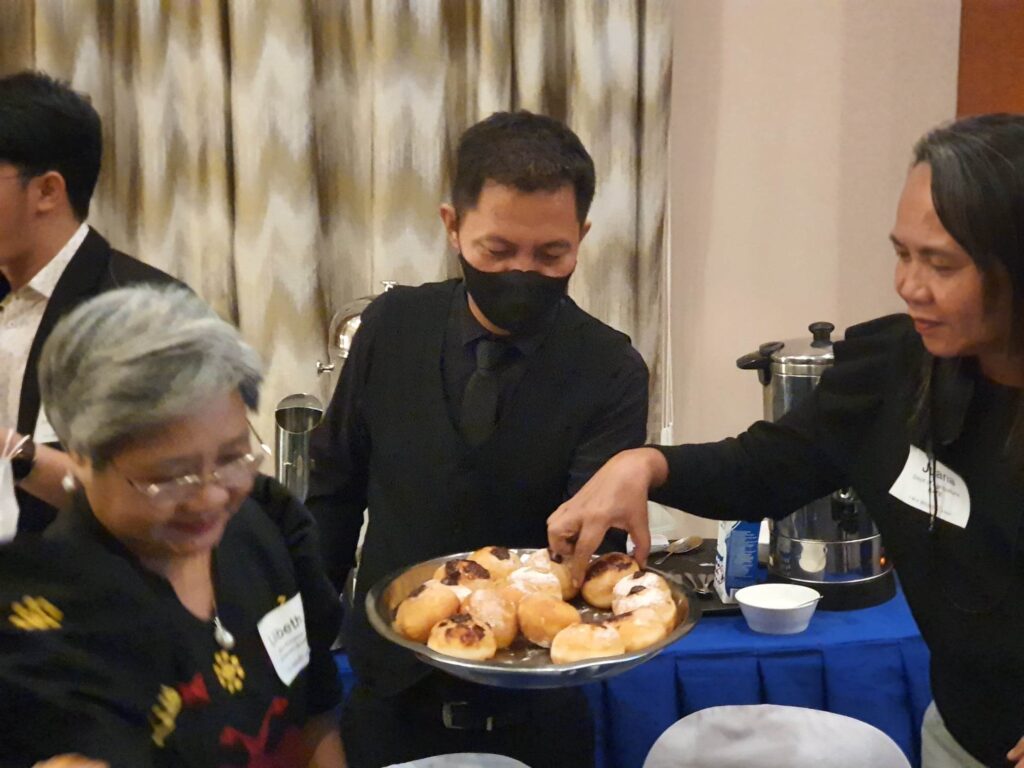
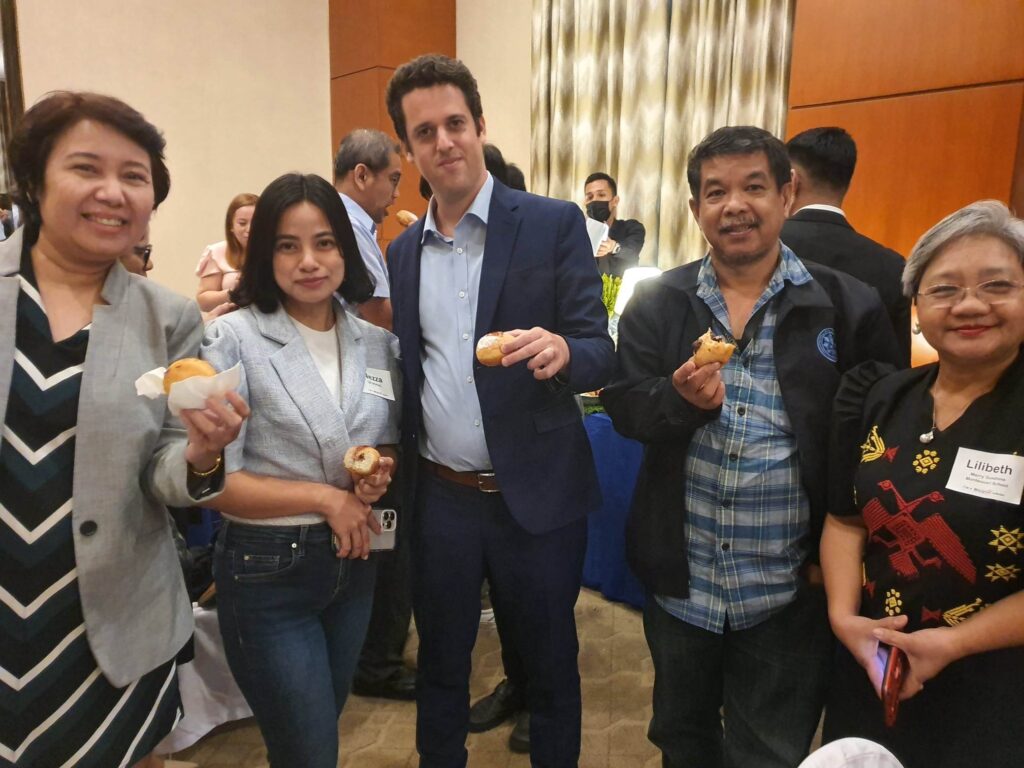
What made the celebration even more festive was the gathering of Filipino Mashav scholars, who underwent schooling in varied courses in Israel. Their conversations ranged from the kinds of course they took up, the places they visited in the Holy Land and an elaborate admiration of Israel’s technological advances, virtues and culture.
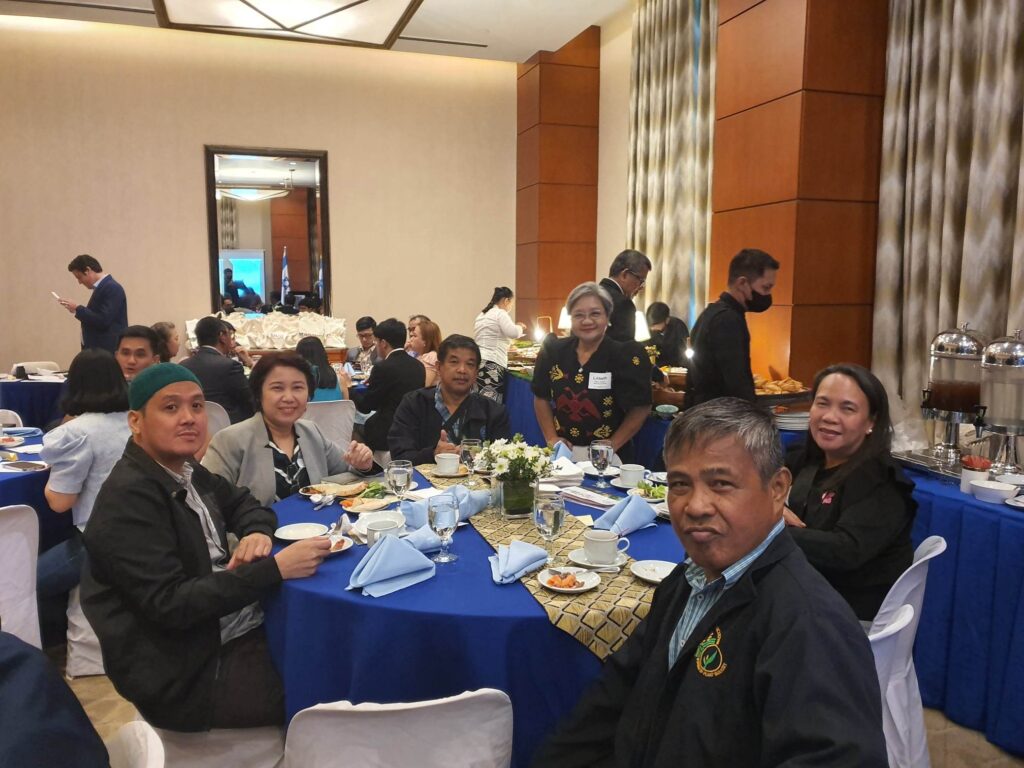
It was fascinating how they easily connected with each other, despite the differences in their courses and the varied times they spent studying as scholars in Israel.
Only a handful of media practitioners were present, including yours truly, from embassytopps.
The Mashav scholars present in the event had a very opportune time to share their separate and or shared experiences in their previous studies in Israel. Those who I was able to mingle with in my table had their scholarships focused either on agriculture or special education. It was a pleasant surprise I was seated with colleague, Ms. Lily Garcia, of FEBC Isabela (DZMR) . She had her studies in Israel on special education some 10 years ago.
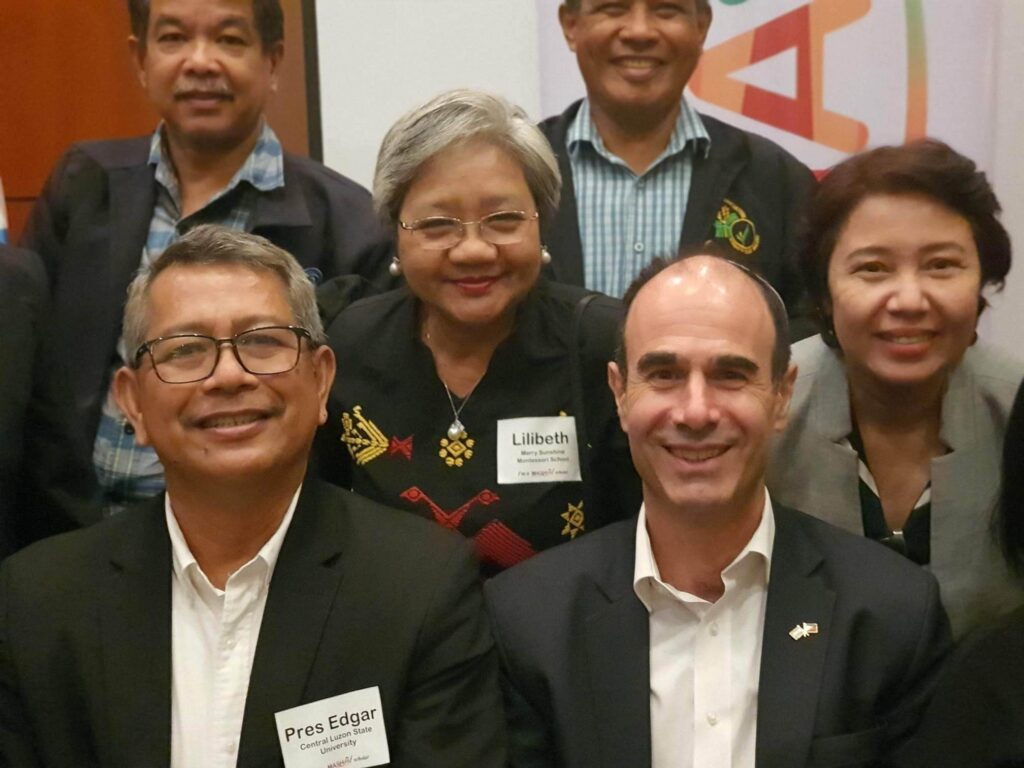
Mashav is the Hebrew Acronym for Center for International Cooperation, according to the Consulate General of Israel in Mumbai.
The office noted Mashav started as a modest program focused on grassroots-level human capacity building in 1958. Eventually, it blossomed into an extensive program of cooperation throughout the developing world, with the aim of promoting sustainable development and social equity.
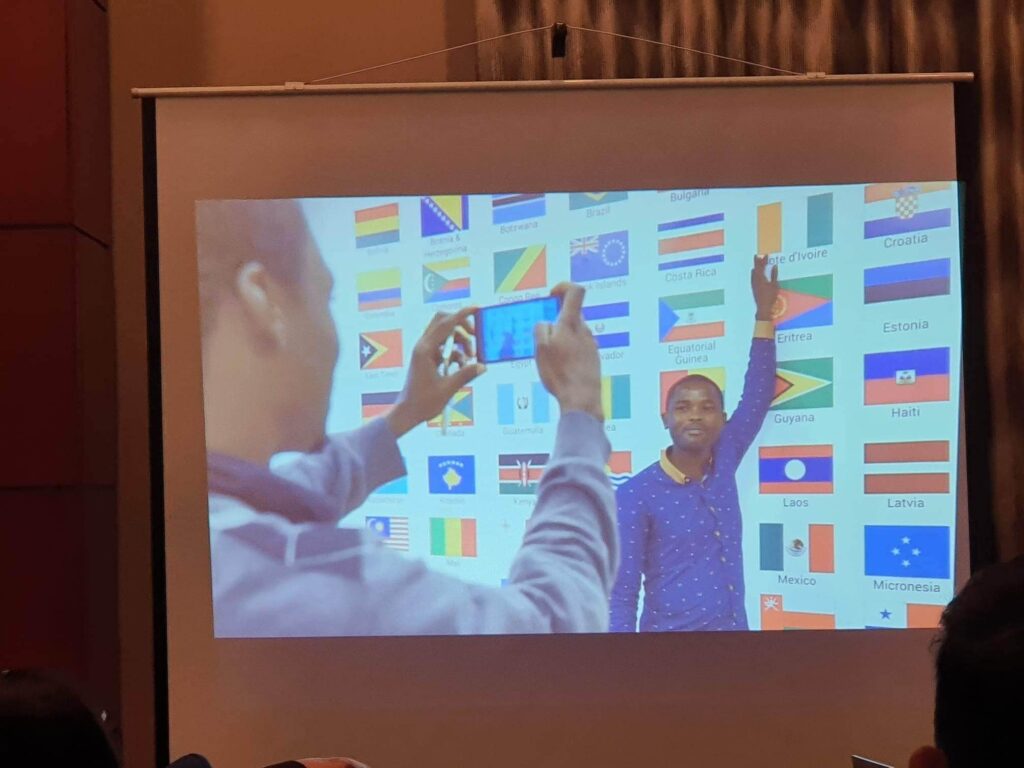
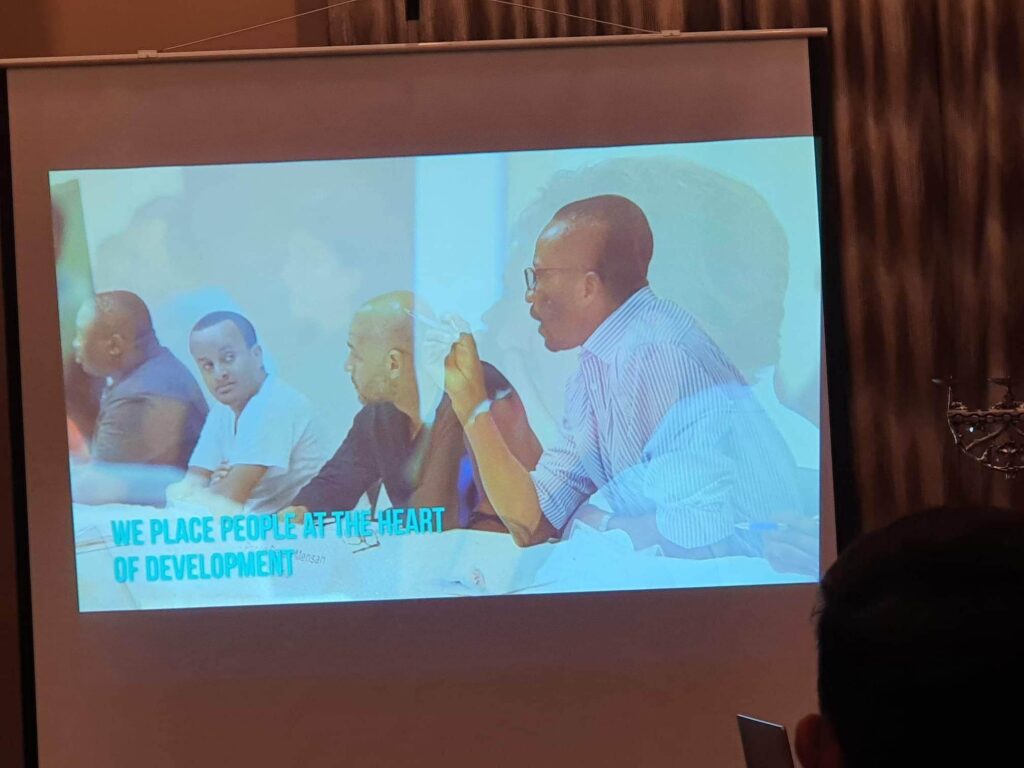
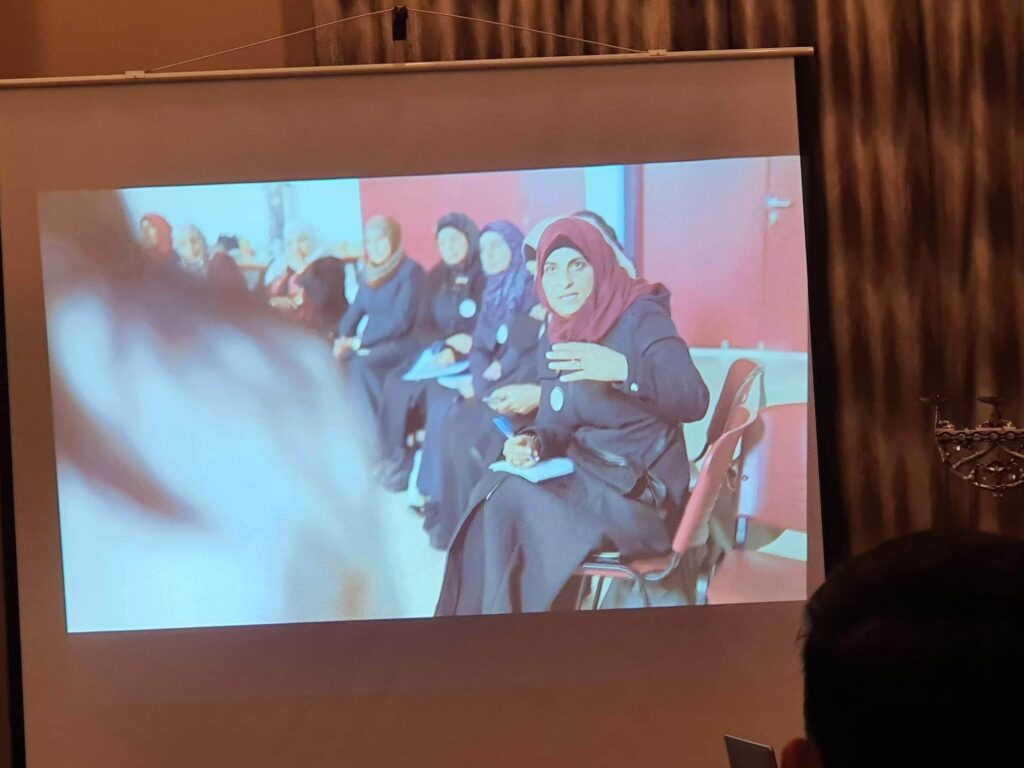
Such a “blossoming” over the years has included Filipinos who further honed their skills and sharpened their knowledge in their chosen fields of interest and chosen careers.
It was amazing how Filipinos continued to get to Israel to study, even at the height of the Covid-19 pandemic, and be equipped to share Israel’s technology in different sectors locally, especially in agriculture. (Embassytopps.com carried the story on this about a year ago).
The yearend activity also featured testimonies of Mashav scholars and how they applied their knowledge and exposure to Israel initiatives in their respective careers and even in government projects.
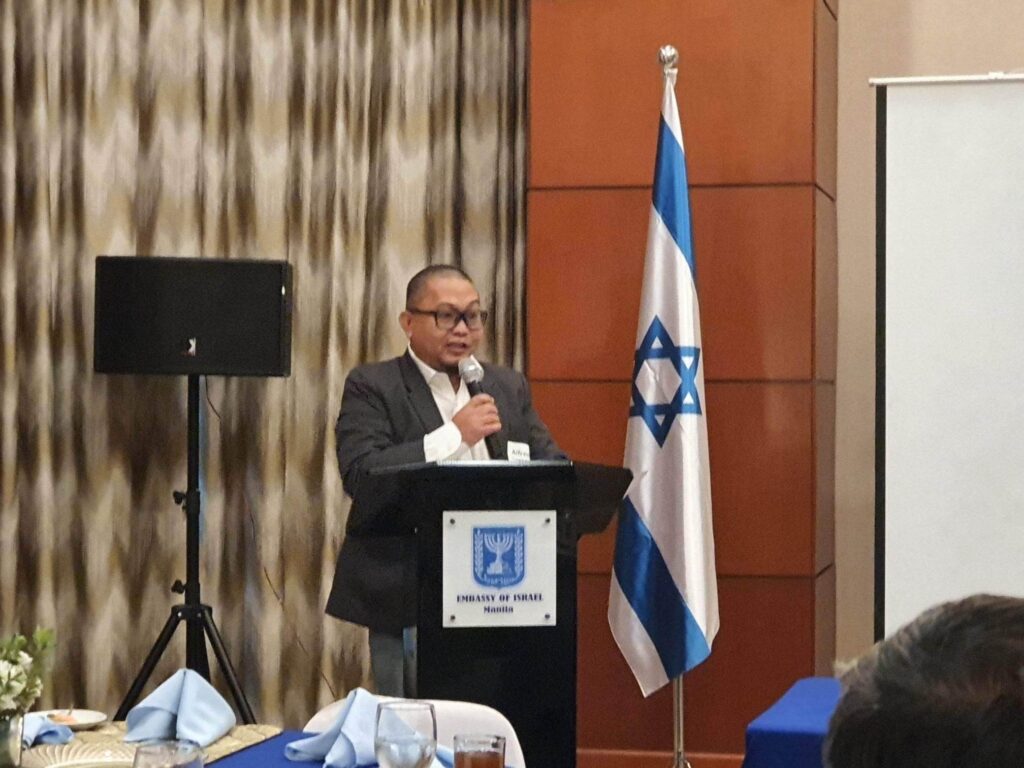
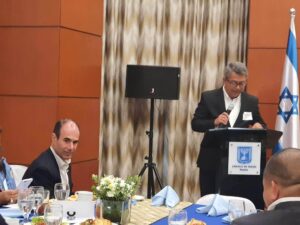
But one speaker, who is yet to be a Mashav scholar, businesswoman and Fabtech founder Jackie Go, told of her ongoing experience in using Israeli technology in farming high-quality and high-yield cacao. She noted how typically local farmers, without using Israeli farming practices and technology, farm traditional cacao, whose quality pale in comparison with the world-class variety.
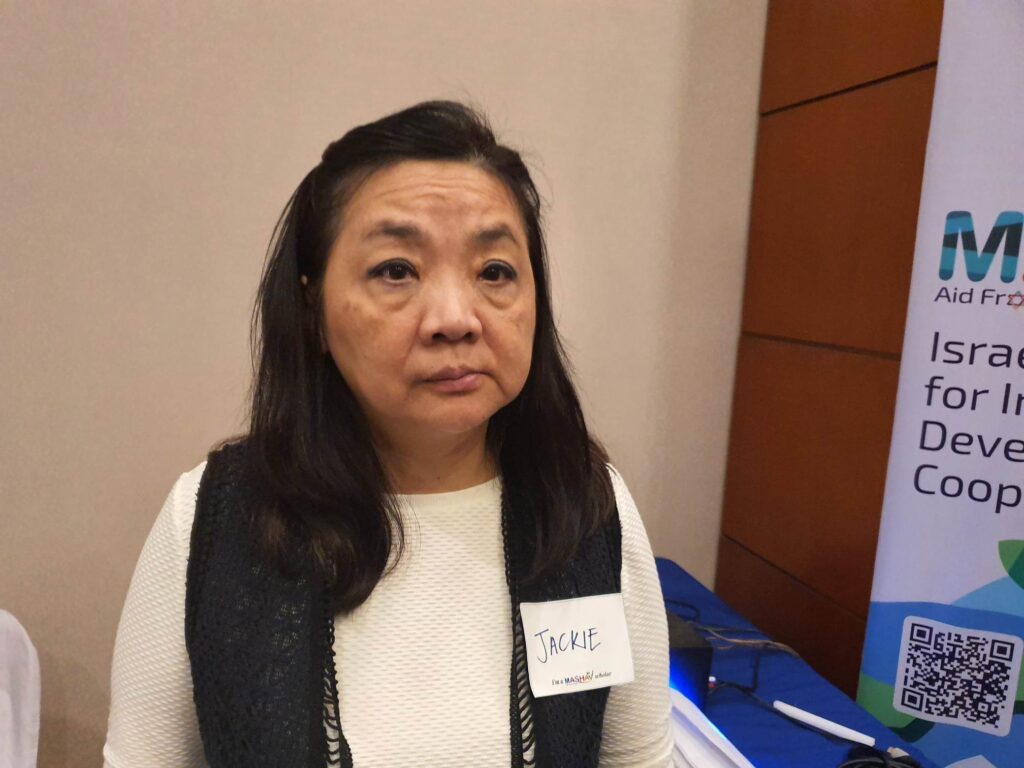
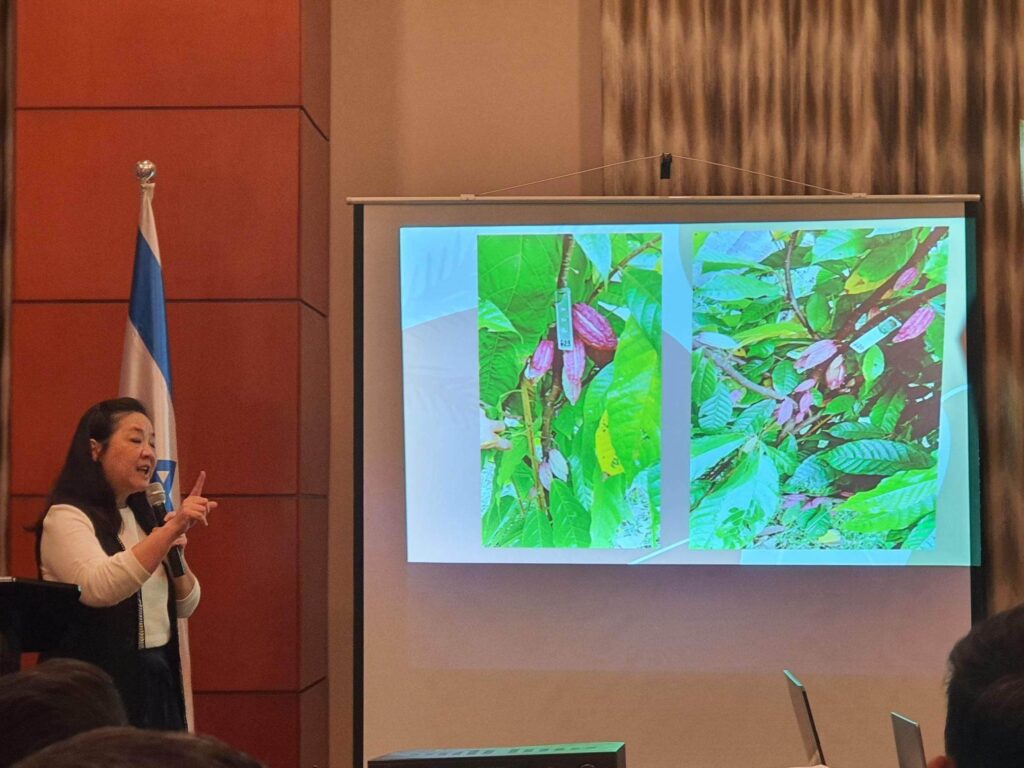
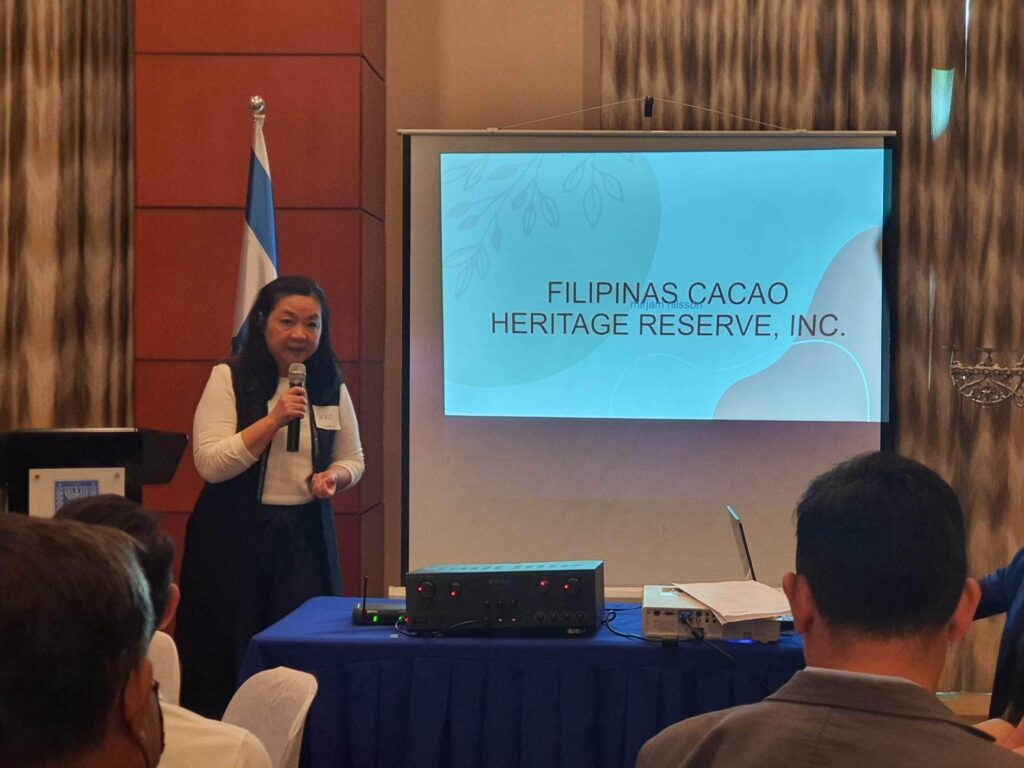
These, Ms. Go said, have the most potential to reach international variety cacao standard and whose prices will soar to greater heights.
One thing she stressed in her presentation, is how imperative it is for soil “to rest” for a time, to recover from previous planting and harvest seasons, to make the next cycle produce great quality farm products again.
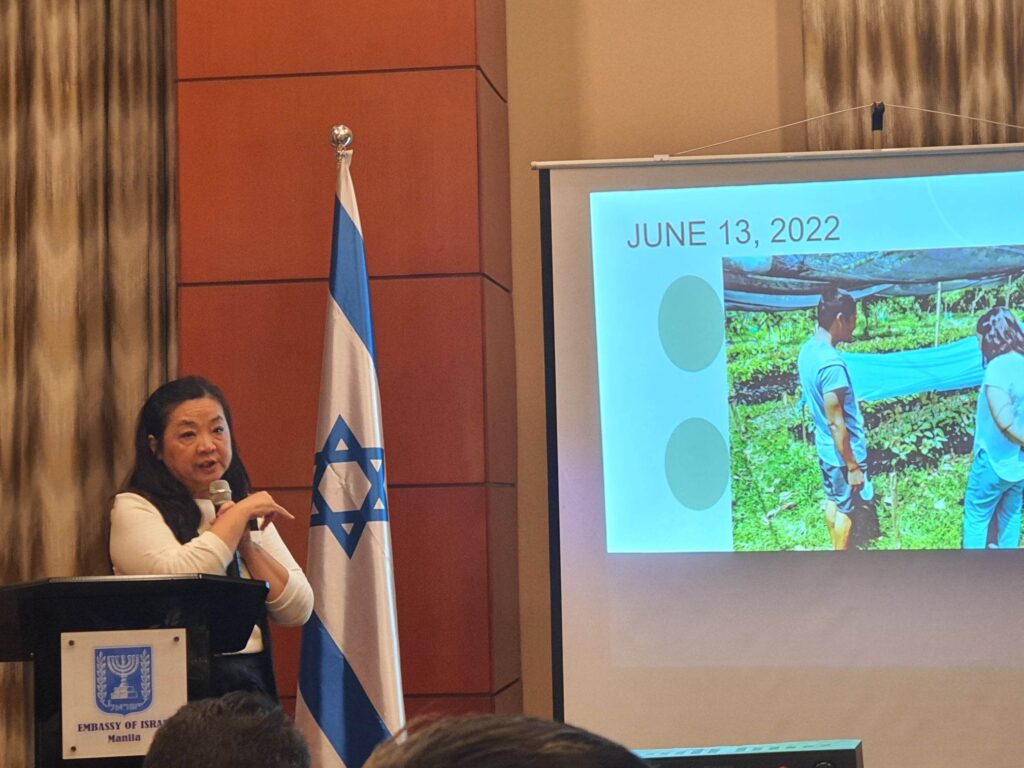
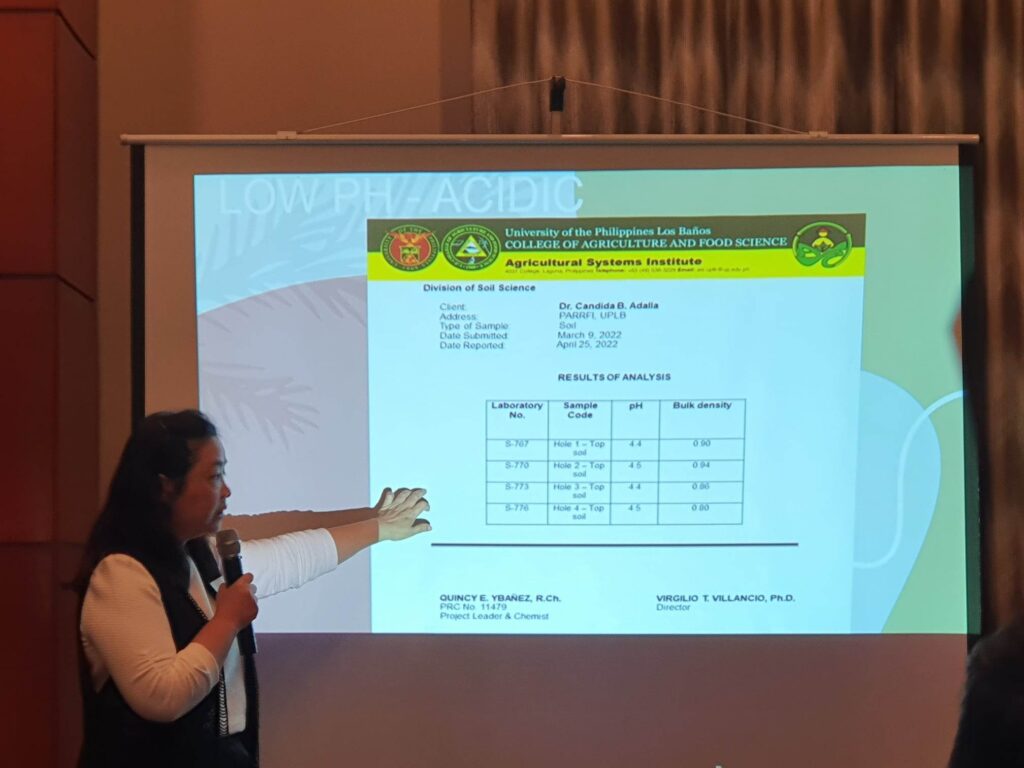
Aside from Ms. Go’s personal experience on how Israeli farm technology works for her cacao farming, other guests noted how other innovation in Israel helped them develop their skills and grow their enterprises. These are innovation, they said, that will definitely contribute to the progress of many sectors in Philippine setting.
Ambassador Fluss, who is now engaged with several top Philippine leaders said, he has expressed willingness to help the government learn more of Israeli innovation, technology and best practices.
